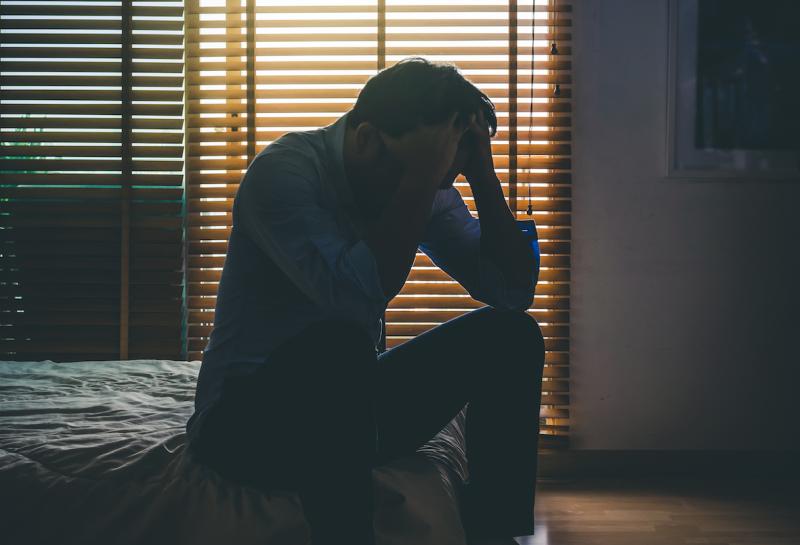
Psychiatric patients suffer from even heavier mental health burdens during the coronavirus disease 2019 (COVID-19) pandemic, according to a recent study.
“The results of this study suggest that psychiatric patients were at a higher risk of displaying higher levels of symptoms of post-traumatic stress disorder (PTSD), depression, anxiety, stress and insomnia, worries about physical health, anger and irritability, and suicidal ideation,” researchers said.
The study included 76 psychiatric patients (mean age, 32.8±11.8 years; 51 females) and 109 age- and sex-matched healthy controls. More psychiatric patients reported experiencing physical symptoms similar to COVID-19 and were more likely to have poor physical health than controls (p<0.001). A mix of anxiety and depressive disorder was common among the psychiatric participants. [Brain Behav Immun 2020;doi:10.1016/j.bbi.2020.04.069]
Patients also scored significantly higher on the Impact of Event Scale-Revised (IES-R) questionnaire than controls (17.7±14.2 vs 11.3±10.1; p<0.001), with 33 (43.4 percent) patients scoring 19 points or higher. Twenty-four patients scored 24 points or higher, as opposed to only 15 controls. This suggested a high level of PTSD-like symptoms in the psychiatric participants.
A similar trend was found for the Depression Anxiety and Stress Scale (DASS-21). Mean anxiety scores were significantly elevated in patients (6.6±9.0 vs 1.5±2.7; p<0.001), as were mean depression scores (8.3±10.3 vs 2.2±3.5; p<0.001). Significantly more psychiatric patients had evidence of anxiety or depressive symptoms than healthy controls (p<0.001 for both).
Stress scores were also significantly greater in the psychiatry group (8.0±9.8 vs 2.7±4.2; p<0.001).
These mental health problems in turn affected the patients’ sleep. Mean scores in the Insomnia Severity Index (ISI) were significantly higher in patients than in controls (10.0±7.16 vs 4.63±4.04; p<0.001), and more than a quarter of the psychiatry group had moderate to severe clinical insomnia.
Aside from these quantitative measures of mental health burden, patients reported additional psychiatric symptoms. For instance, 29 percent of psychiatric patients said that they had moderate to severe worries about their physical health, as opposed to only 4.6 percent of healthy controls (p<0.001).
Anger and impulsivity were likewise more common among patients (21 percent vs 0.9 percent; p<0.001), as was moderate to severe suicidal ideation.
Discrimination, paranoid ideas, alcohol use, auditory hallucinations and the intent to harm others were all unaffected by the pandemic.
“Our findings rejected the original null hypothesis that there were no differences between the levels of depression, anxiety and stress, and psychological impact encountered by people with and without psychiatric illnesses during the peak of COVID-19 epidemic with strict quarantine measures,” the researchers said.
In particular, they also found that psychiatric patients who experienced no change in or worsening physical health status were “significantly more likely to endorse higher mean IES-R, DASS depression, anxiety, and stress subscale, and ISI scores.”
“Our findings identify potential targets of assessment and care for psychiatric patients as part of the new immunopsychiatry service during a pandemic,” they said. “Our results can be used as a reference for mental health professionals and authorities for a future outbreak of infectious disease.”